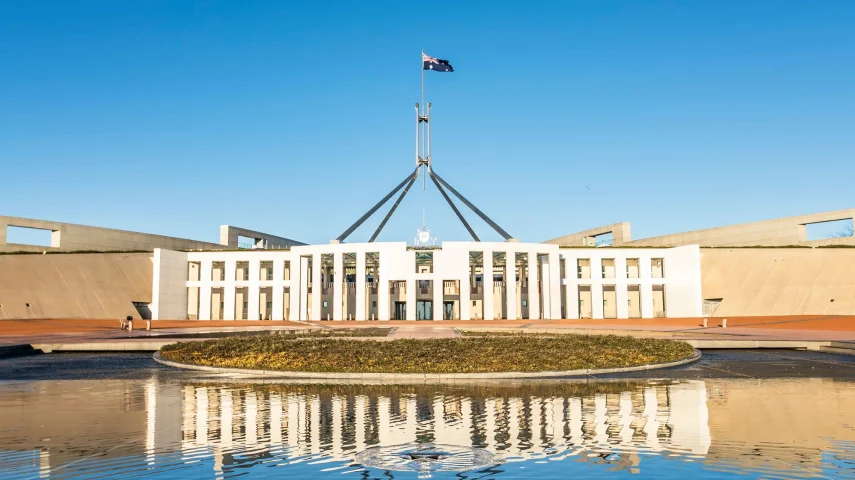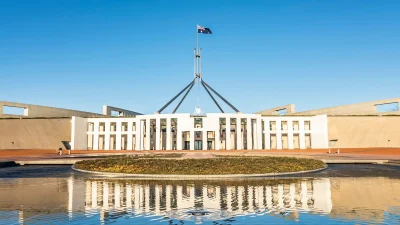‘No big wins’ for advice sector in 2024 budget



Two industry bodies have pinpointed the small wins and losses in Treasurer Jim Chalmers’ third budget for the financial advice profession and broader financial services industry.
On 14 May, Chalmers handed down the 2024–25 federal budget where the range of measures include cost-of-living relief, superannuation on paid parental leave, and $17.3 million allocated towards sustainable finance markets.
Reacting to the announcement, the Financial Advice Association Australia (FAAA) said this year’s budget is more about what isn’t included than what is in the document.
Prior to the budget’s release, the FAAA had put forward its six-item budget wish list for the advice sector. This ranged from implementing a fairer ASIC funding levy to managing the costs of the Compensation Scheme of Last Resort.
However, FAAA chief executive Sarah Abood said these calls were ignored by the government as she expressed her disappointment in this year’s budget.
“Minister Stephen Jones has acknowledged the importance of financial advice, but there is little remedy for the skyrocketing costs that advisers have been and will continue to pay,” she remarked. “Much of these costs will inevitably be passed on to consumers, further raising the cost of professional financial advice that more Australians need more than ever.”
While she acknowledged there were “some positives” for advisers running small businesses, she urged the government to consider the six ideas put forward by the FAAA to have a practical impact on the cost of professional advice.
Speaking on an FAAA budget webinar, Phil Anderson, FAAA general manager for policy and advocacy, said there were “no big wins” for advisers.
“The bottom line is, we didn’t get any of those things [we asked for], but they remain core priorities for us and we will continue to advocate for them. Sometimes in the advocacy space, it is a hard grind. You can come out of events like this week’s budget feeling disappointed, but we have to keep pushing on and calling for what we want to see happen,” Anderson described.
George John, FAAA senior manager for government relations and policy, expressed he was unsurprised but disappointed by the lack of advice-related measures.
“We are getting to the point now where there is disappointment about how slow reform has come to the financial advice sector,” he shared.
In a webinar with the Financial Services Council (FSC), Minister for Financial Services, Stephen Jones, addressed this industry reaction and said the government is committed to passing the Quality of Advice reforms by May 2025 to help advisers.
He particularly flagged that he hopes the second tranche of reforms will have a greater impact than the first. Released last December, this will cover areas such as advice being provided by banks and super funds, the replacement of Statements of Advice with an advice record, and a new class of “qualified adviser”.
“The big piece of work that will make a significant difference is the next tranche of work and I want to focus love and attention on that,” he told FSC chief executive Blake Briggs.
“The amount of work we need to get done between now and May, including in the advice space, I want to get this done. That’s not to diminish the issue [of the super trustees], but I want to impress the pressure we have upon us in delivering that big piece and getting that through.”
In a positive light
Away from the changes (or lack of) to the financial advice space, the FSC largely welcomed the budget for the broader financial services and investment community.
The industry body supported the new funding for a product labelling regime for investment products, issuing green bonds and developing a regulatory framework that complements international frameworks.
This will see the government provide $17.3 million over four years from 2024–25 (and $3.1 million per year ongoing) to promote the development of sustainable finance markets in Australia. The cost of this measure will be partially met from cost-recovery through ASIC and APRA industry levies, the government said.
“Australia’s investment community is key to the transition to a low-carbon economy and the federal budget recognises the importance of developing an internationally aligned regulatory regime and a clear investment product labelling framework,” commented Briggs.
This was also supported by the Responsible Investment Association of Australasia (RIAA) which suggested the product labeling regime was based on RIAA’s own certification process which has been running since 2005.
Estelle Parker, RIAA co-chief executive, said: “For too long, Australia was a late starter globally in recognising the opportunities provided by sustainability to all sectors, from primary industries, to manufacturing and workforce development. We must not miss out on the global capital flowing to invest in the transition to a low-carbon future – it won’t last forever.
“A regime that is informed by RIAA’s extensive experience in sustainable investment labelling can establish a leading practice for Australia.”
Briggs also welcomed the addition of superannuation on paid parental leave (PPL), noting that Australian women retire with 25 per cent less in retirement savings than men. The matter has been pushed for by the industry for several years in a bid to address the gender super gap which sees women retiring with far smaller superannuation balances.
Commenting on the delay, Jones said: “You’ve won, Australians have won, the price tag on this is a tick over $1 billion dollars. I see it as correcting an anomaly and it is a meaningful contribution to women, but not exclusively women’s superannuation balance.”
The PPL changes were also welcomed by superannuation funds, particularly those which have a high proportion of female members.
Debby Blakey, chief executive of HESTA, said: “This is a great investment in the financial future of women across Australia that will narrow the gender super gap, all the while sending a clear message that unpaid caring work is valued.”
“The gender super gap for Rest members nearing retirement has widened in recent years. This reform will help to close the gap, but it’s one of many needed to fully address this issue,” added Vicki Doyle, chief executive of REST.
Despite this, the FSC chief executive added that more measures could be put in place to capitalise on growth in the Australian financial services industry.
“There are significant opportunities for Australia to become a global financial centre by implementing strategic reform to become a more attractive and competitive destination for international investment,” Briggs continued.
Recommended for you
Marking off its first year of operation, Perth-based advice firm Leeuwin Wealth is now looking to strengthen its position in the WA market, targeting organic growth and a strong regional presence.
In the latest edition of Ahead of the Curve in partnership with MFS Investment Management, senior managing director Benoit Anne explores the benefits of adding global bonds to a portfolio.
While M&A has ramped up nationwide, three advice heads have explored Western Australia’s emergence as a region of interest among medium-sized firms vying for growth opportunities in an increasingly competitive market.
Private wealth firm Escala Partners is seeking to become a leading player in the Australian advice landscape, helped by backing from US player Focus Financial.











